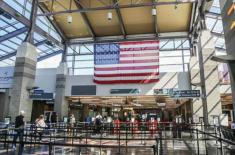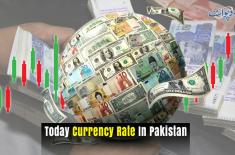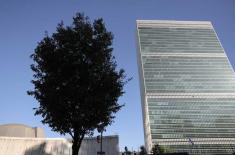
Trump Sets $100,000 Annual Fee For H-1B Worker Visas
Abdullah Hussain (@Abdulla99267510) Published September 20, 2025 | 11:12 AM

Under new directive, companies seeking to hire foreign workers on H-1B visas would now be required to pay an annual fee of $100,000 per visa holder
WASHINGTON: (UrduPoint/UrduPoint / Pakistan Point News-Sept 20th, 2025) US President Donald Trump signed an executive order imposing a hefty $100,000 annual fee for H-1B worker visas in a bid to tighten immigration rules, the international media reported on Saturday.
Under the new directive, companies seeking to hire foreign workers on H-1B visas would now be required to pay an annual fee of $100,000 per visa holder.
President Trump stated that in certain cases, firms would need to pay even higher amounts depending on the nature of their applications.
The move marks a sharp escalation from the previous fee structure, where filing costs ranged from $215 to several thousand Dollars depending on the category and employer size.
The industry experts warn that this dramatic increase would create significant financial pressure on companies that rely heavily on skilled foreign talent, particularly in the technology sector.
According to a report, the decision is expected to hit US tech giants and startups alike, many of which recruit engineers and IT professionals from countries such as India and China. The companies have long depended on the H-1B program to fill specialized roles amid a shortage of domestic talent.
Immigration analysts say the new fee will not only deter companies from hiring foreign workers but may also discourage top global talent from seeking employment in the United States. Critics argue the policy could undermine America’s competitive edge in innovation, while supporters claim it will encourage firms to prioritize U.S. workers.
The order comes amid President Trump’s broader push to restrict legal immigration, a key theme of his political agenda. Businesses and advocacy groups are expected to challenge the decision, warning that it could disrupt operations and drive tech investments to other countries.
Related Topics
Recent Stories

Trump sets $100,000 annual fee for H-1B worker visas

Currency Rate In Pakistan - Dollar, Euro, Pound, Riyal Rates On 20 September 202 ..

Today Gold Rate in Pakistan 20 September 2025

India beat Oman to stay unbeaten in Asia Cup 2025 group stage

UAE President arrives in Belgrade on working visit to Serbia

UN allows Palestinian President to address annual gathering via video

UAE defeat Qatar in Gulf Padel Championship

UAE President concludes official visit to Georgia

UAE President meets honorary chairman of ruling Georgian Dream Party

UAE President, Georgian Prime Minister discuss growth of bilateral ties under Co ..

UAE’s strong presence at Expo Osaka reflects its global standing: UAE Pavilion ..

UAE Pavilion at Expo 2025 Osaka conducts workshop on traditional crafts
More Stories From World
-

Trump sets $100,000 annual fee for H-1B worker visas
6 minutes ago -
Afghanistan quake leaves women and girls facing 'long-term consequences': UN
11 hours ago -
Palestinian President Mahmoud Abbas to address UNGA virtually after U.S. revoked visa
11 hours ago -
KP Governor visits sacred Islamic sites in Makkah
12 hours ago -
UNSC decides not to lift Iran sanctions, but still time to agree on delaying
13 hours ago -
President Zardari attends banquet hosted by Vice Governor of Xinjiang
13 hours ago
-
President Asif Zardari departs from Urumqi to Kashgar
20 hours ago -
Pakistan showcases textile excellence at Texworld 2025 Summer Show
1 day ago -
Climate change wreaking havoc on world’s water cycle: 'From drought to deluge' -- UN
1 day ago -
PM strongly condemns bomb blast in Chaman
1 day ago -

Media cooperation dialogue on Belt & Road held in Kunming China
2 days ago -

PM hails security forces' successful Khuzdar operation against Fitna-ul-Hindustan
2 days ago


